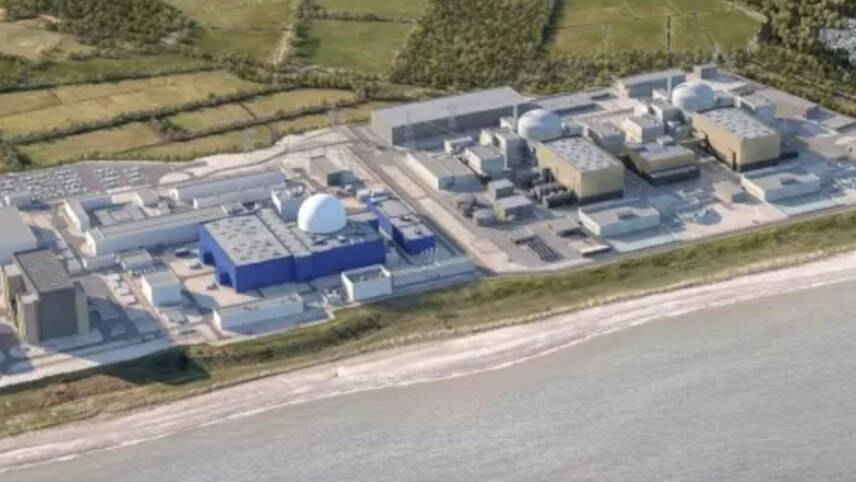Member only content free until 26/05/2024
To continue reading this article and enjoying free access to all Utility Week’s content up to the 26/05/2024 Register today!
Ready to become a member?

Sizewell C has been granted a nuclear site licence by the Office for Nuclear Regulation (ONR).
The regulator has approved the licence, almost two years after it raised concerns with the original application to install and operate a nuclear power station at Sizewell C in Suffolk.
The ONR said that it is now satisfied that the application has met all the requirements set out in regulatory guidance, with areas of previous concern “now resolved to ONR’s satisfaction”.
In its initial assessment of the application, the ONR identified two outstanding matters that required resolution before a licence could be granted.
The two topics that prevented the granting of a licence in 2022 related to the shareholders’ agreement and ownership of land at the site.
Mina Golshan, safety, security and assurance director at Sizewell C, said: “Securing a nuclear site licence is a show of confidence from our nuclear regulator that we have a suitable site, that we can achieve a safe design replicated from Hinkley Point C, and that we have a capable organisation ready to begin major construction work. It’s a huge milestone and demonstrates that this project is firmly on track.
“We have made good progress already and this licence gives us the framework to further advance this project.
“As we do so, our commitment to safety remains unwavering and we will continue to work with our partners to bring learning from Hinkley Point C, and other major infrastructure projects, to drive best industry practice in safety and environmental protection.”
Now granted, Sizewell C is able to formally request the ONR’s permission for starting nuclear-related construction.
Mark Foy, ONR’s chief nuclear inspector and chief executive, said: “The licensing process is fundamental in confirming that operators of a nuclear site are ready and able to meet their obligations under the nuclear site licence, to protect their workforce and the public.
“The granting of this licence is one step in ONR’s process, allowing us to provide greater regulatory oversight, advice and challenge to the licensee as they progress their plans.”
Last month, changes were made to the terms of Sizewell C’s RAB funding model to ensure consumers are protected from potential construction delays and cost overruns to the nuclear power plant.
In particular, the government has introduced a tiered approach to delay penalties with staggered incremental increases and higher penalties for longer delays.
The RAB model, which is designed to cut lending costs by allowing developers to collect regulated payments from suppliers while projects are being built, has been used for other major infrastructure projects such as the Thames Tideway ‘super sewer’. It effectively means that consumers will be paying the whole cost of the project via supplier levies before the nuclear plant is generating electricity.
During the consultation process, Ofgem raised concerns that consumers will be left on the hook for potential cost overruns and delays to the construction of Sizewell C.
The regulator urged the government to ensure that the underlying project costs and schedule estimates are “robust” prior to the government taking a final investment decision on the nuclear power plant.
Ofgem said this is “especially pertinent given the ongoing challenges being experienced by EDF with the construction of Hinkley Point C, which shares many design elements with the proposed Sizewell C plant”.
In January, Sizewell C announced that construction work could formally begin after the company triggered its Development Consent Order (DCO) for the project. The developer said it had satisfied all of the conditions imposed when the DCO was granted in July 2022.
The energy secretary at the time, Kwasi Kwarteng, awarded planning permission for the 3.2GW power station against the recommendations of the Planning Inspectorate’s Examining Authority, which raised concerns over its environmental impacts and the lack of clarity over its future water supplies.
The government has so far invested around £2.5 billion in the development of Sizewell C.




Please login or Register to leave a comment.